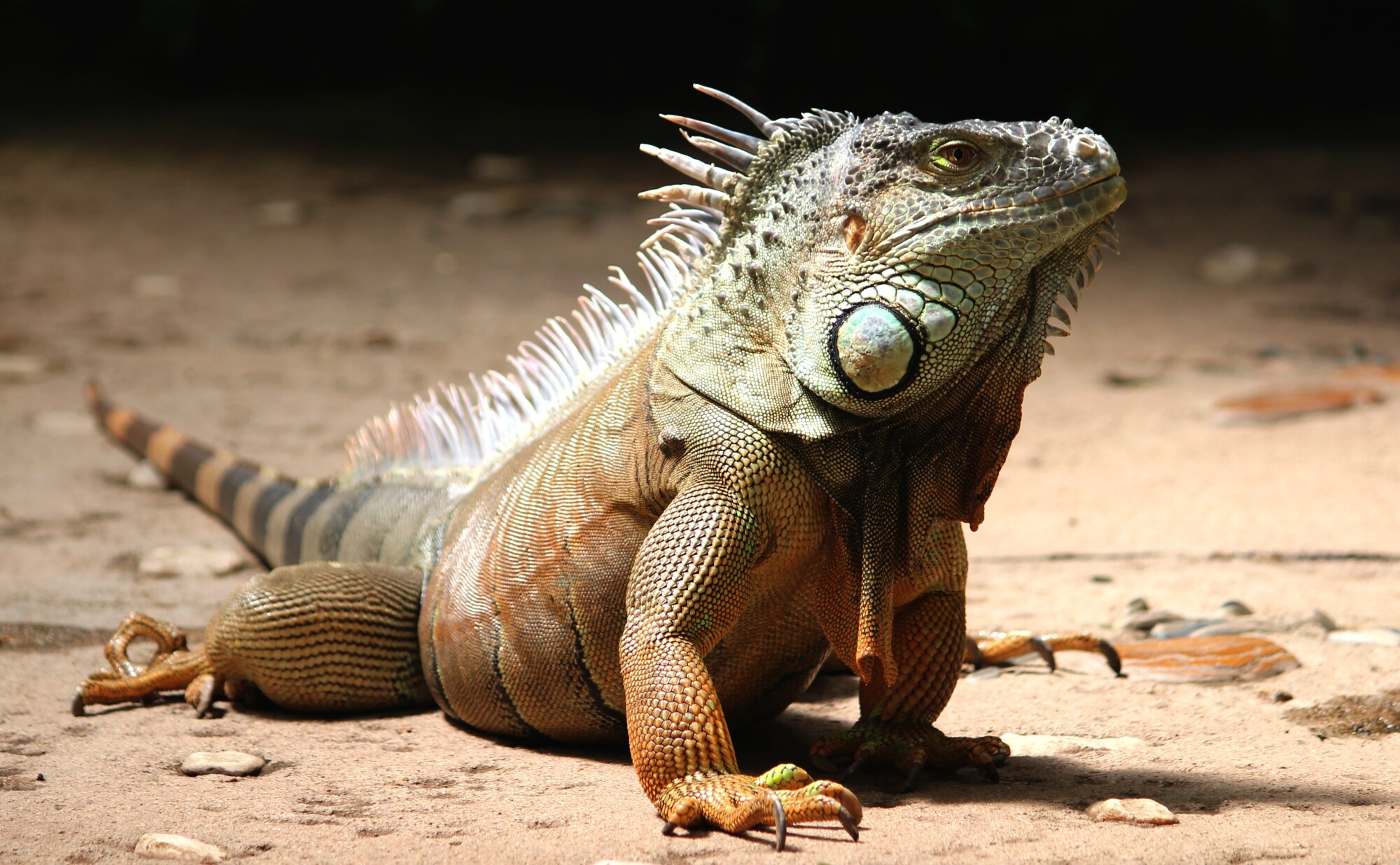Do you have a pool? Do you live in a humid area like Florida? If you answered “yes,” you may be at risk for an iguana lizard invasion.
Iguana lizards are more harmful than you think. They are considered an invasive species in some areas due to their impact on property and the environment.
These reptiles wreak havoc on roofs, gardens, and cars; but we need to understand iguanas to prevent their spread. You may be providing an ideal habitat for iguanas without realizing it.
Are you interested in learning more about the diet of an iguana lizard but don’t know where to start? Start here and learn more.
Iguana Lizard Diet
In captivity, iguana lizards have a simple diet. Owners should feed their pets greens like kale with occasional fruit and crickets.
In the wild, however, their diet is more diverse.
An iguana lizard will come to your house if you give them a desirable habitat with plenty of food. Iguanas love vegetables and fruit, but they can snack on small animals for extra protein. Their diets are very versatile which affects endangered species.
Their colorful diet creates another problem: smelly poop. Once an iguana lizard wanders into your yard, you may notice smelly feces around your garden and pool.
Avoid iguana poop around your pets. Iguana lizard feces may have contagious diseases like salmonella.
Iguana Lizard Prevention
How do you stop iguana lizards from snacking on your garden? There are a few ways to prevent them from moving in.
Avoid leaving scraps of food outside. Their diets are versatile, so don’t tempt them with leftover food.
If you have fruit trees, keep the area clear of fallen fruit. This may be difficult, but iguana lizards love finding fruit on the ground. Pick up any fruit when you walk outside.
Iguana lizards are cold-blooded; this means that they need to regulate their body temperature. They need to alternate between sun and shade. This means that they flock to bushy, shaded areas, so keep your bushes trimmed.
Better yet, clear anything that can provide a large area of shade like stones and logs. If you see a good hiding place, remove it.
Iguana Lizard Removal
Don’t expect iguana lizards to disappear. They live a long time and reproduce rapidly as long as the temperature is hot enough.
How long do iguanas live? The iguana lifespan is anywhere from 8 to 20 years, but most iguanas live for around 10 years.
If you suspect iguana lizards around your house, you are beyond prevention. You’re at the removal stage.
Be careful with removal. Iguana lizards are protected by anti-cruelty laws.
The easiest and safest way to remove them from your area is to use Iguana Removal 305 services. We know how to control iguana lizard populations while staying humane and legal. You can request preventative services, one-time removal, or recurrent removal for persistent iguana lizards.
Do you have a raccoon problem? We have information on raccoon control as well.
Request a quote and read more about iguana and raccoon control on our website.



Comments are closed